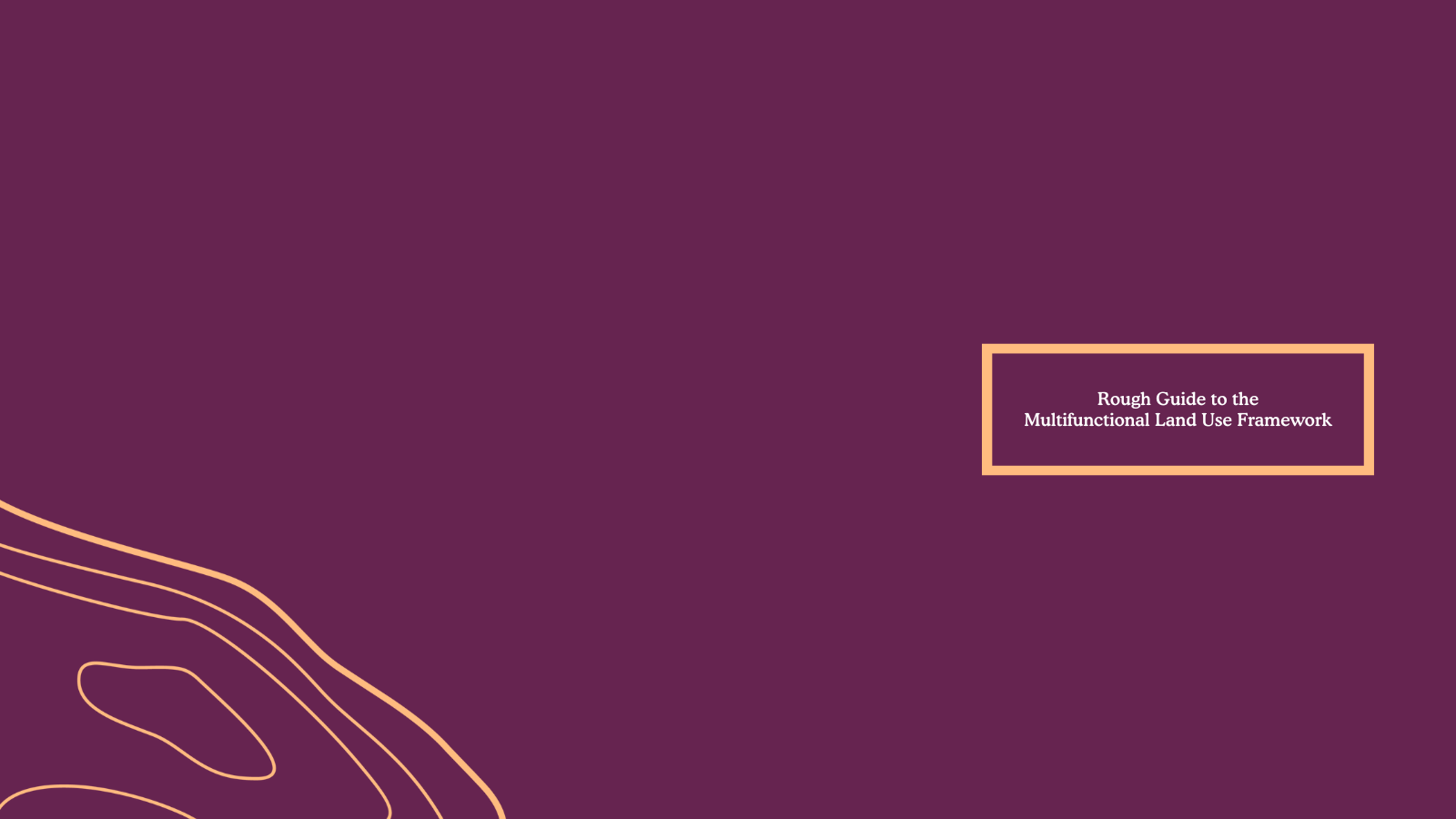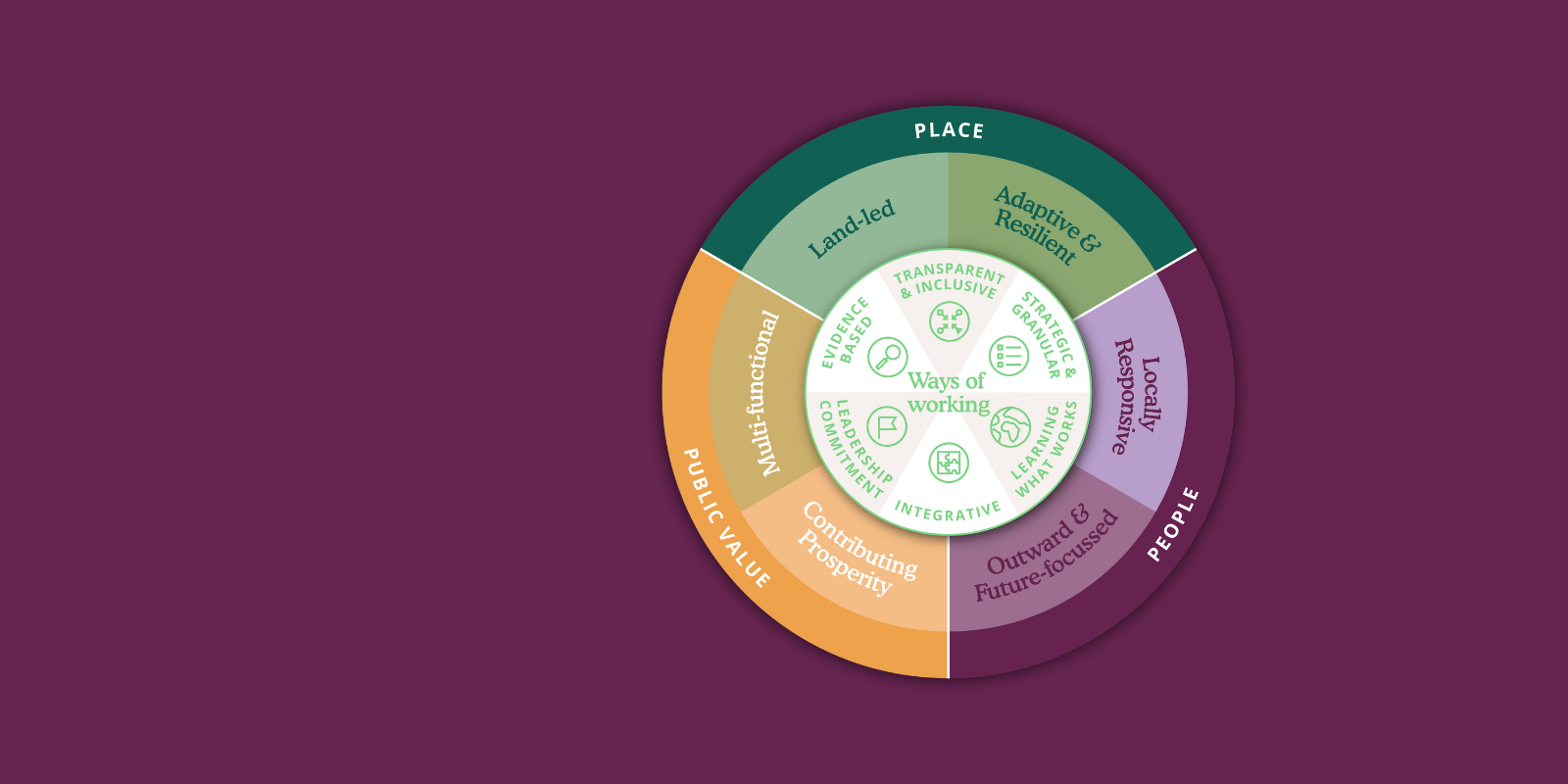

A practical process that supports better, more sustainable decisions about land, by all those who need to make them, including local and national government, businesses and communities.

The MLUF could enable you to base decisions on fully cross-sectoral evidence and priorities to try to ensure optimal decisions both for yourselves and for society.
The MLUF could provide benefits in policy delivery, by encouraging proper debate over land use, saving time and money. Collaborative approaches help align and pool resources, share data, knowledge and skills, leading to more sustainable decisions being made.
The MLUF could offer the prospect of considering all aspects of the project at an early stage, aligning stakeholder interests and avoiding the late emergence of issues at the implementation stage.
The MLUF could help direct your energies and local knowledge at an early stage into creative, practical ideas and solutions. It should reduce objections, optimise trade-offs and help avoid unintended or unforeseen consequences.
The MLUF could offer a more certain planning horizon, enabling you to integrate critical questions of food security and resilience in land use decisions.
The MLUF facilitates balanced decision process with other stakeholders which leads to a quicker and more efficient decisions and the right housing in the right locations for sustainability, community, jobs and public services.
The MLUF could provide a more strategic, long-term opportunity for risk assessments, asset values and return on investment calculations.
The MLUF could enable you to base decisions on fully cross-sectoral evidence and priorities to try to ensure optimal decisions both for yourselves and for society.
The MLUF could provide benefits in policy delivery, by encouraging proper debate over land use, saving time and money. Collaborative approaches help align and pool resources, share data, knowledge and skills, leading to more sustainable decisions being made.
The MLUF could offer the prospect of considering all aspects of the project at an early stage, aligning stakeholder interests and avoiding the late emergence of issues at the implementation stage.
The MLUF could help direct your energies and local knowledge at an early stage into creative, practical ideas and solutions. It should reduce objections, optimise trade-offs and help avoid unintended or unforeseen consequences.
The MLUF could offer a more certain planning horizon, enabling you to integrate critical questions of food security and resilience in land use decisions.
The MLUF facilitates balanced decision process with other stakeholders which leads to a quicker and more efficient decisions and the right housing in the right locations for sustainability, community, jobs and public services.
The MLUF could provide a more strategic, long-term opportunity for risk assessments, asset values and return on investment calculations.
FFCC roots its proposals in both original research and curating other expert perspectives, wide-ranging consultations and on-the-ground pilot projects.

A Land Use Framework must be locally responsive and inclusive, relating land use decisions to other places and future generations.
Land must be used to encourage multifunctionality, and contribute prosperity to local communities.
Land use decisions should be land-led to ensure that land is used for what it is best suited, and managed to be adaptive and resilient to future climate impacts.
A Land Use Framework must be locally responsive and inclusive, relating land use decisions to other places and future generations.
Land must be used to encourage multifunctionality, and contribute prosperity to local communities.
Land use decisions should be land-led to ensure that land is used for what it is best suited, and managed to be adaptive and resilient to future climate impacts.
Support for a MLUF continues to grow. Wales, Scotland, Northern Ireland (and the Republic of Ireland) are also developing their own land use decision processes.
All four are paying attention to the need for strategic and functional interoperability on critical issues at policy, landscape and catchment level.
We will update the Rough Guide with more insight and evidence, from early 2024.
These organisations have
proposed or supported a Multifunctional Land Use Framework.
In our 2019 report Our Future in the Land, FFCC proposed a Land Use Framework to help improve land use decision-making. Since then, we have produced blogs, briefings, project updates and reports setting out the case for a Land Use Framework with multifunctionality at its heart.
Browse this collection below.

